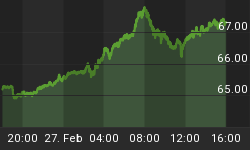It was reported yesterday the Moody's Investors Service has elected to leave its Spain sovereign debt rating at one credit rating level above 'junk', with a negative outlook. It apparently did this on basis of what it perceives is "a reduction in the risk of Spain losing market access because of the European Central Bank's willingness to buy the nation's bonds". The markets responded positively, with Spain's 10-year bond yield falling by 29 basis points to 5.52% as of mid-day (Greenwich Mean Time) yesterday.
The following things are worth thinking about:
-
that this was seen by some as important news;
-
the referenced article carried the following sub-title: "This (Moody's not downgrading Spain's government bonds) is unambiguously good news for risk appetite, and quite downbeat for (German) bunds". 'Unambiguous' is a big word that eliminates all qualifiers. Can this statement be accurate, or to use another big word, is it simply 'hyperbole' (i.e. exaggeration). I would opt for the latter;
-
Moody's rating of Baa3 is nine rating levels lower than an Aaa rating, the highest rating assigned to sovereign debt by Moody's. Baa3 is that lowest possible 'investment grade' rating granted by Moody's within its rating system;
-
It is evident Moody's, and other rating agencies, views 'move' the financial markets - where there are frequent naysayers who comment on the quality of the work done by those agencies; and,
-
to lower Spain's sovereign debt rating now to "junk" in the face of what are very likely behind-the-scenes ongoing discussions around a financial bail-out of Spain would have been an extremely difficult thing for Moody's to do;
-
if Spain, the European Union and the Eurozone come to terms on a financial bailout, what will such a thing do for the credit rating of the European Union and the Eurozone themselves?; and,
-
a downgrade of Spain's sovereign debt to "junk" only three weeks before the U.S. Presidential election could have been seen by Moody's as one of those 'it can't help and might hurt' decisions. It can always reassess its decision after more is known about a Spain bailout, and after the U.S. election - which events might coincide chronologically.
One notch above "junk" with a negative outlook for any government bond isn't good. While the Moody's 'unchanged position' and the timing of its announcement is interesting, it is unlikely to be the last word on Spain's sovereign debt as we move forward.
You might also want to read:
-
Why Spain hasn't asked for a bailout yet. That article postulates that Spain's Prime Minister Mariano Rajoy may be employing a 'financial bailout negotiation stall strategy' centered on a belief that "the worse it (Eurozone country financial difficulties), the better it (Spain's negotiation position) gets for Spain". That echoes some of what I have been saying in this Newsletter in recent weeks; and,
-
Spanish bad loans hit new high. That article reports bad loans held by Spain's banks hit a record high in August, and that the so-called Spain 'Bad Bank' that is being set up to take 'bad property assets' from Spain's banks to help them recapitalize is being structured to hold up to 90 billion euros worth of such assets. This where the recent Spain bank audit released in mid-September said in a worst case scenario that Spain's banks were undercapitalized by about 60 billion euros.
Topical References: Spain dodges a bullet as debt rating upheld, from The Financial Post, from Bloomberg News, David Goodman and Lucy Meakin, October 17, 2012 - reading time 3 minutes. Also read:
-
Why Spain hasn't asked for a bailout yet, from The Financial Post, from Bloomberg News, Ben Sills, October 16, 2012 - reading time 3 minutes; and,
-
Spanish bad loans hit new high, from Reuters, Manuel Maria Ruiz, October 18, 2012 - reading time 2 minutes.















